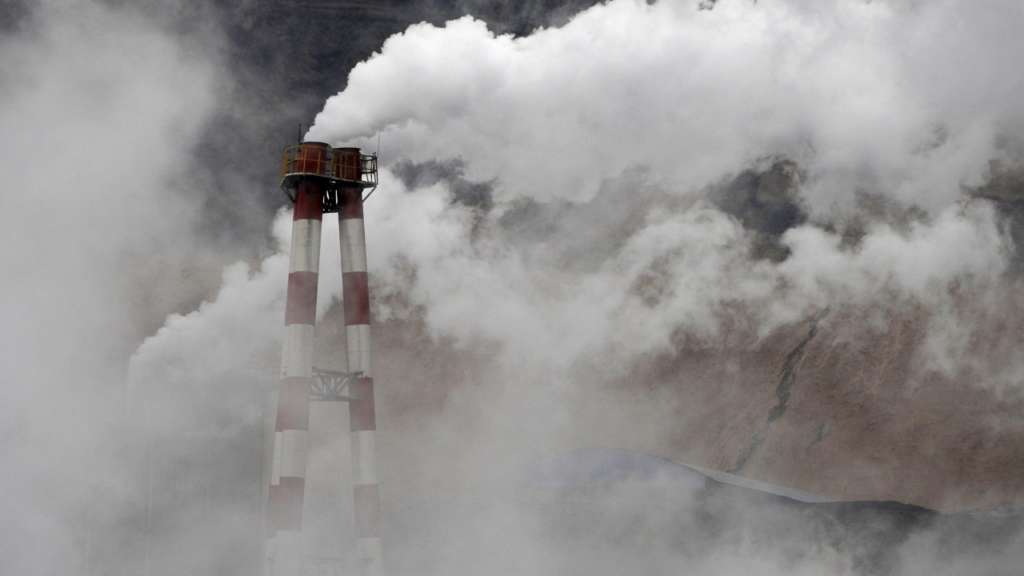Washington – US President Donald Trump announced on Thursday his country’s withdrawal from the Paris climate deal, fulfilling one of the pledges he had made during his electoral campaign.
He said that remaining in the 2015 agreement would undermine the US economy, cost US jobs, weaken American national sovereignty and put the country at a permanent disadvantage to the other countries of the world.
The withdrawal decision goes in line with his “American workers first” vow that he made soon after he came to office. Trump hoped that a “better deal” would be reached instead of the 2015 one.
Trump, who has called climate change a hoax, said his administration would begin negotiations either to re-enter the Paris accord or to have a new agreement “on terms that are fair to the United States, its businesses, its workers, its people, its taxpayers.” He complained in particular about China’s terms under the agreement.
China’s state news agency Xinhua published a commentary on Trump’s decision to withdraw from the Paris accord, describing it as a “global setback.”
China overtook the United States as the world’s biggest emitter of greenhouse gases in 2007.
With Trump’s action, the United States will walk away from nearly every other nation in the world on one of the pressing global issues of the 21st century. Syria and Nicaragua are the only other non-participants in the accord.
Russia joined the chorus speaking out for the climate accord. Speaking to reporters on Thursday before Trump’s decision was announced, a spokesman for President Vladimir Putin said Russia “thinks highly” of the accords and sees no alternative to it. Spokesman Dmitry Peskov added that its implementation will not be as effective “without the key signatories.”
The leaders of France, Germany and Italy said in a joint statement that they regretted the United States’ decision to withdraw from the accord, but affirmed “our strongest commitment” to implement its measures and encouraged “all our partners to speed up their action to combat climate change.”
In Berlin, Chancellor Angela Merkel expressed “regret” at the decision, and called for a continuation of “climate policies which preserve our world.”
While Trump said the United States would be willing to rejoin the accord if it could obtain more favorable terms, the three European leaders said the agreement cannot be renegotiated, “since it is a vital instrument for our planet, societies and economics.”
President Emmanuel Macron of France repeated that belief in an English-language speech from the presidential palace, unprecedented from a French president in an address at home. He said, “I do respect this decision but I do think it is an actual mistake both for the US and for our planet.”
“Wherever we live, whoever we are, we all share the same responsibility: make our planet great again,” Macron added.
The European Union’s top climate change official, Miguel Arias Canente, said in a statement that Trump’s decision to leave the Paris accord made it “a sad day for the global community,” adding that the bloc “deeply regrets the unilateral decision.”
Canete also predicted that the EU would seek new alliances from the world’s largest economies to the most vulnerable island states, as well as US businesses and individuals supportive of the accord.
UN Secretary General Antonio Guterres called the US withdrawal from the Paris climate agreement “a major disappointment” and said it was “crucial that the United States remains a leader on environmental issues,” according to his spokesman.
Trump’s announcement comes less than 18 months after the climate pact was adopted in the French capital, the fruit of a hard-fought agreement between Beijing and Washington under former US President Barack Obama’s leadership.
The Paris Agreement commits signatories to efforts to reduce greenhouse gas emissions that cause global warming, which is blamed for melting ice caps and glaciers, rising sea levels and more violent weather events.
They vowed steps to keep the worldwide rise in temperatures “well below” two degrees Celsius (3.6 degrees Fahrenheit) from pre-industrial times and to “pursue efforts” to hold the increase under 1.5 degrees Celsius.
